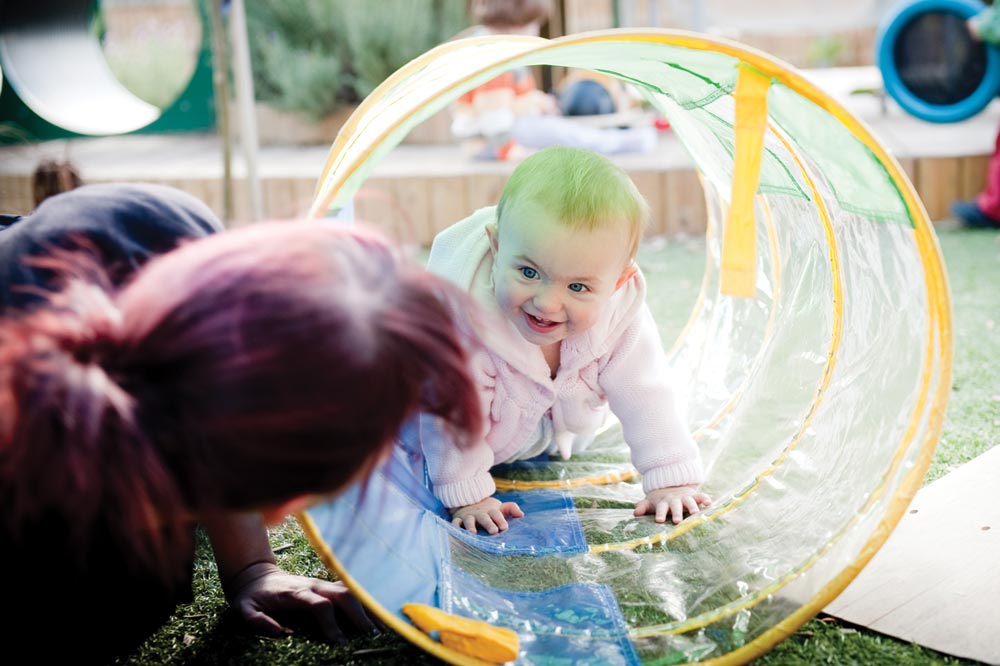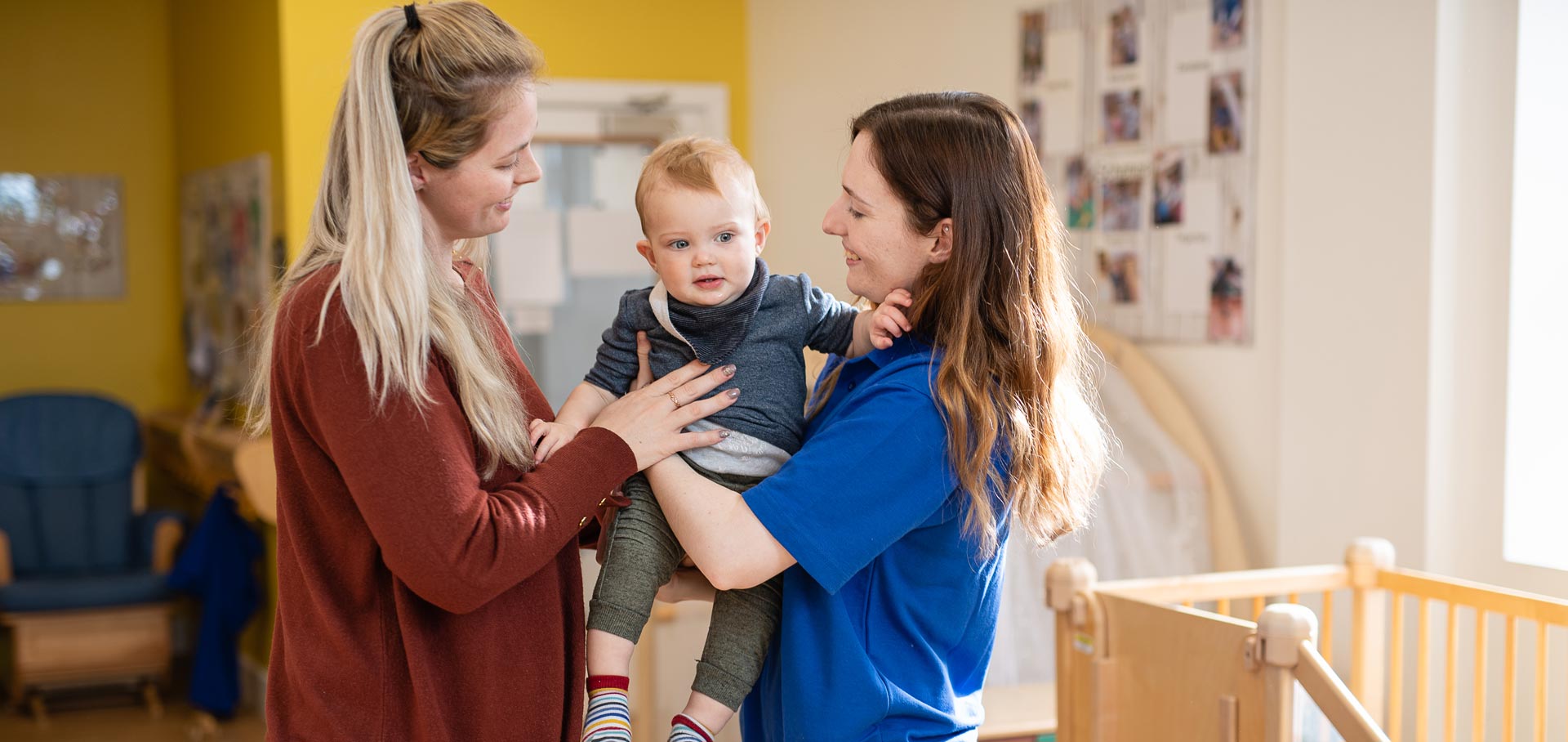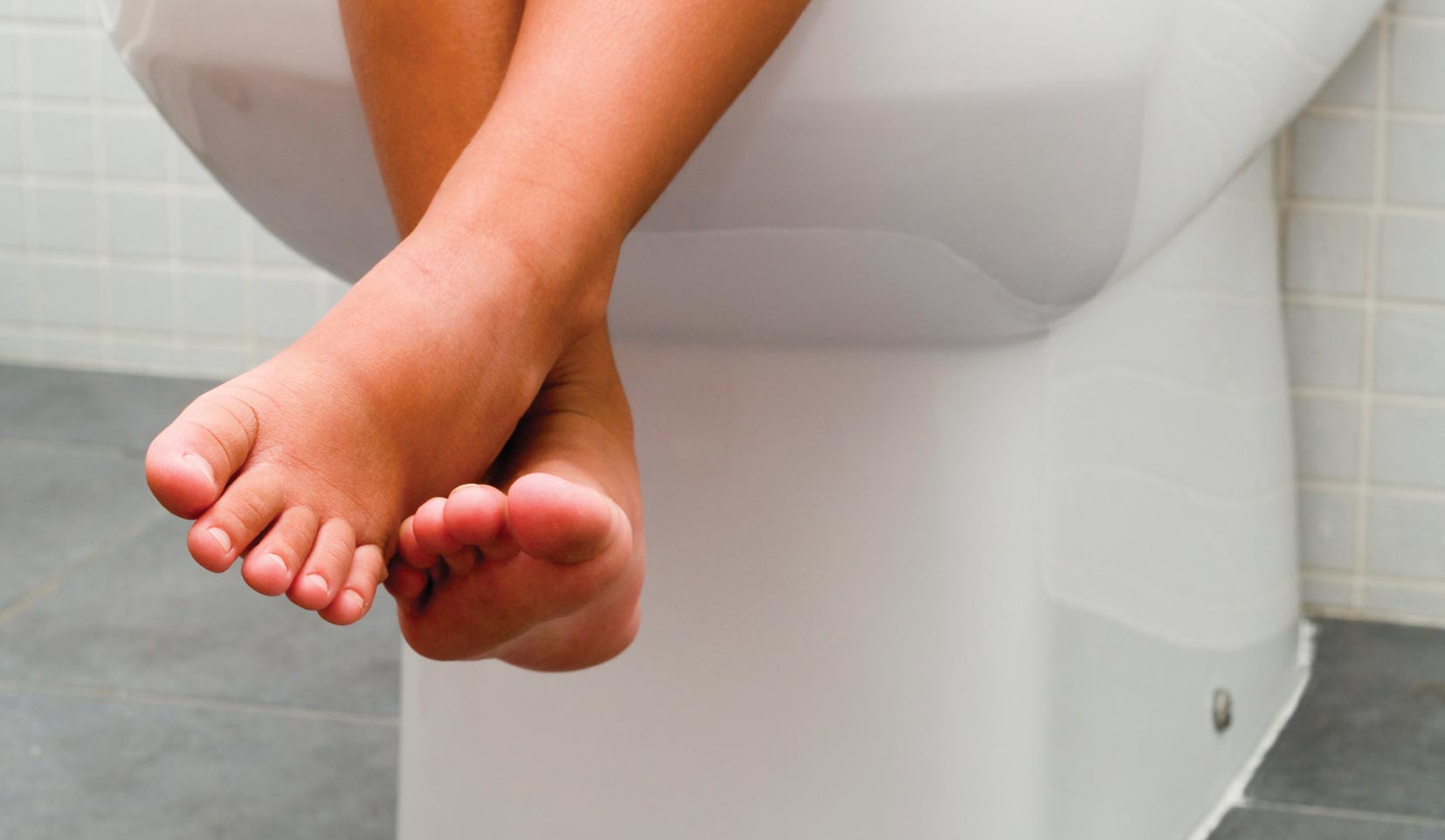
A Guide to Weaning
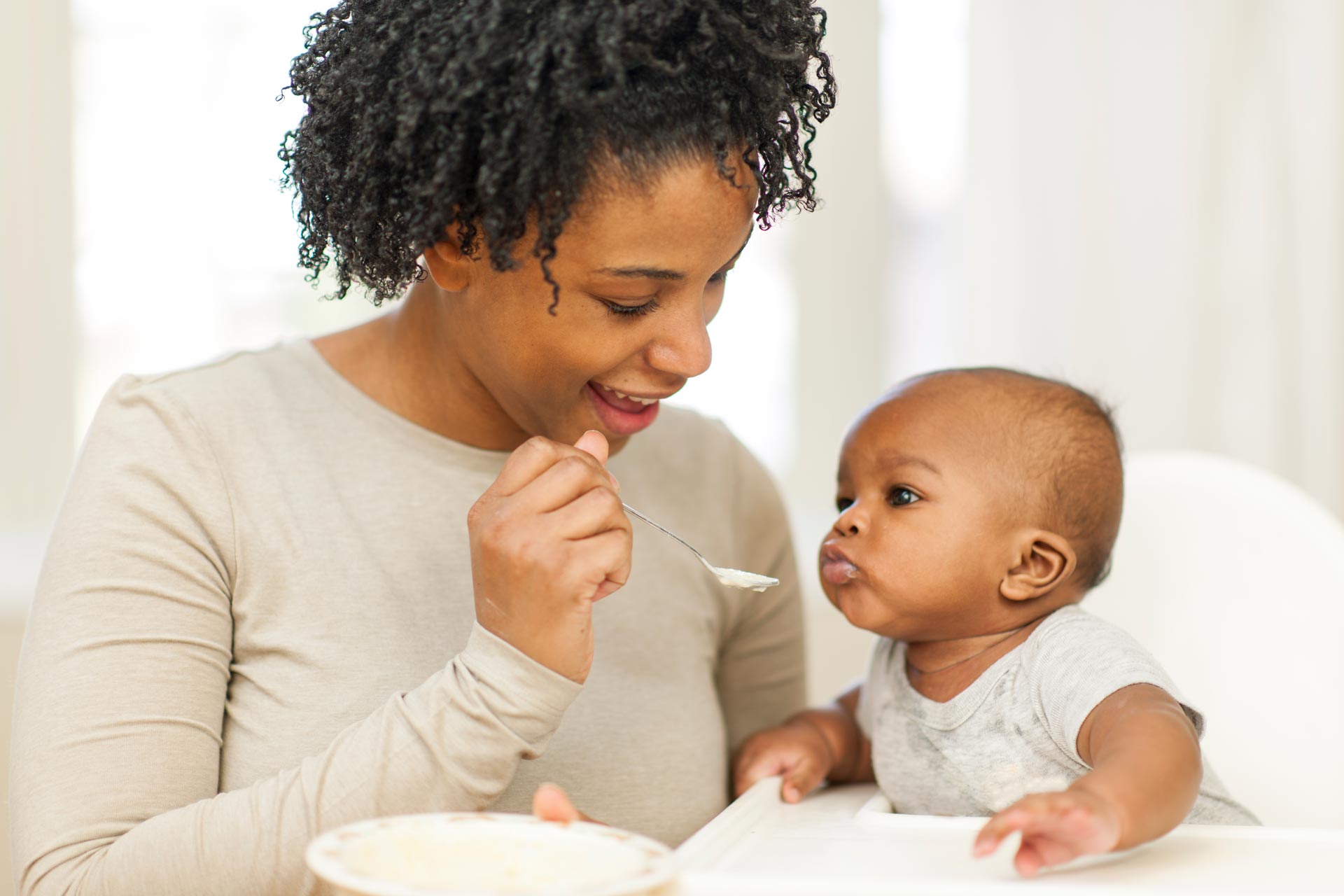
Also know as Complementary Feeding
The NHS advice is that weaning should begin at around 6 months of age. Your baby’s digestive system should have sufficiently matured to be able to cope with solid food and they should have the ability to bite and chew.
Introducing your baby to a varied range of tastes and textures means that, by the time they reach their first birthday, they are already enjoying a balanced, healthy diet. Move forward at a pace that suits you and your baby’s needs. Whilst some babies will enjoy the process of experiencing new foods, others will take time and be less keen.
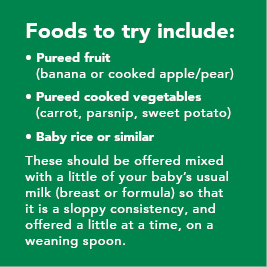 Introduce your baby to new solid foods at a time of day when they are not too tired or hungry. It is also advisable to offer their usual milk feed first. If they don’t seem
interested, leave it and try again another time; they will still be getting all the nutrients they need from their breast or formula milk feeds. This is a big change, so be patient if they don’t take to it straight away.
Introduce your baby to new solid foods at a time of day when they are not too tired or hungry. It is also advisable to offer their usual milk feed first. If they don’t seem
interested, leave it and try again another time; they will still be getting all the nutrients they need from their breast or formula milk feeds. This is a big change, so be patient if they don’t take to it straight away.
When your baby is ready, you can increase the frequency of feeding from just once to three times a day. At this stage, you should also introduce pureed meat or pulses, and some full-fat milk products such as baby yoghurts (fullfat milk should not be offered as a drink until your baby is a year old but it can be used in cooking). Reduce the amount of cereal such as baby rice, but continue offering a variety of different fruits and vegetables.
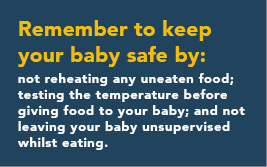 When you start to offer your baby the same food as yourself, remember not to add salt or sugar. Honey is not suitable for babies under one. Gradually offer thicker
purees, then move on to mashed or chopped foods. Finger foods can be introduced as soon as your baby starts solid foods; usually babies love the opportunity to start feeding themselves in this way. It’s best to start with finger foods that break up easily in their mouth and are long enough to be gripped.
When you start to offer your baby the same food as yourself, remember not to add salt or sugar. Honey is not suitable for babies under one. Gradually offer thicker
purees, then move on to mashed or chopped foods. Finger foods can be introduced as soon as your baby starts solid foods; usually babies love the opportunity to start feeding themselves in this way. It’s best to start with finger foods that break up easily in their mouth and are long enough to be gripped.
More key stage guides...


